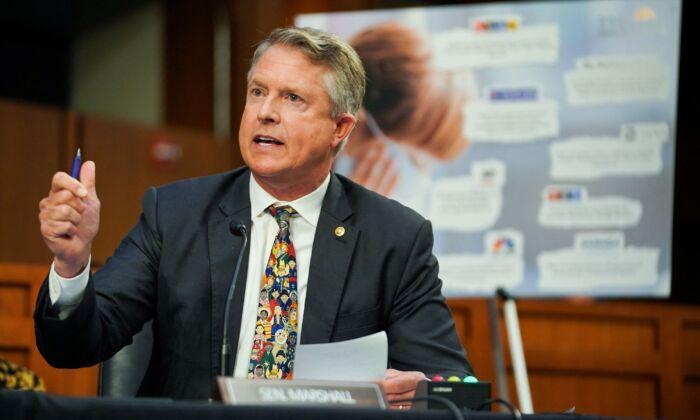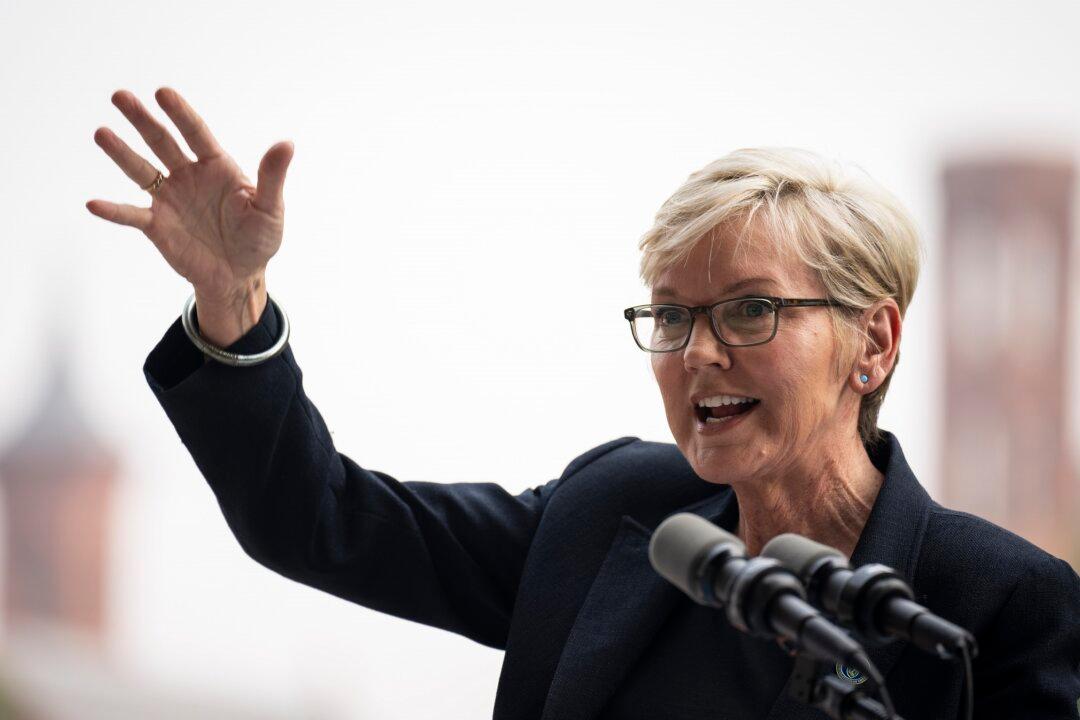Senator Roger Marshall (R-Kans.) is urging restraint and skepticism before the United States accepts a recently proposed World Health Organization (WHO) pandemic response agreement, known as WHO CA+.
The WHO recently introduced an early-stage draft proposal for a convention, agreement, or “other international instrument” for coordinating global pandemic responses.
The WHO proposal comes amid heightened skepticism of the organization following its response to the COVID-19 pandemic. Marshall is among those who signaled hesitance to accept the draft proposal and suggested the agreement would see the WHO usurp some U.S. authority in the public health realm.
“I want to read it twice, have my lawyers look at it as well, but we'll never usurp [sic] authority to the World Health Organization over the United States,” Marshall told NTD News.
Marshall went on to suggest that a one-size-fits-all approach to public health scenarios might not make sense. He said the United States could treat the WHO’s proposed international pandemic response agreement as “a piece of advice” but said broader WHO control over how countries handle public health is “way outside of their lane.”
“As a physician, I’m willing to listen to that advice,” Marshall added. “But absolutely, we need local control. The same response to a public health emergency like COVID, what works in Kansas probably is not going to be the same thing that works in in a very crowded state like New York, so we’re not going to usurp [sic] any power to the World Health Organization.”
The Proposed Agreement
Given its draft nature, the specific details of the WHO’s proposal are subject to change.One of the most concrete proposals in the draft legislation is a commitment by countries that develop treatments, vaccines, and tests to reserve 20 percent of any such products for the WHO to administer to “developing countries.”
The proposed agreement would also include legally binding language for its participating members.
Proponents of the draft proposal see it as a way to ensure that developing nations provide key details on disease outbreaks and disease “genomic sequences” in a timely manner to ensure that developed nations know how to respond to emerging diseases and begin preparing treatments. In return for sharing this key information about disease outbreaks, developing nations are ensured at least some access to testing and treatments created by richer developed nations.
Distrust of WHO
Marshall shared his distrust of the WHO, describing WHO Director Tedros Adhanom Ghebreyesus as someone who “has been bought and paid for by the Chinese Communist Party.”The WHO has been criticized for its initial response to the global COVID-19 outbreak.
During the initial COVID outbreak period, then National Security Advisor Robert O'Brien alleged that China was slow to provide information about the risks posed by the virus and it took weeks before a WHO team was allowed to enter the country. The WHO’s initial report praised the Chinese response while making little mention of the Chinese government’s efforts to suppress critics and whistleblowers.
“We should go back and restrict all of our funding with the World Health Organization until it has a complete review, Marshall told NTD News. ”It probably needs to have a hearing here in Congress and take a really deep dive because I do think that they’re being controlled by the Chinese Communist Party right now.”
“The bulk of WHO CA+ does not focus on addressing the weaknesses in pandemic prevention and detection revealed by the COVID-19 pandemic, but on establishing a system to direct expenditures by the treaty parties, require regulatory and policy changes relating to pandemic-related products and intellectual property, and ‘equitably’ redistribute knowledge, technology, and other resources,” the Heritage Foundation wrote.






Friends Read Free